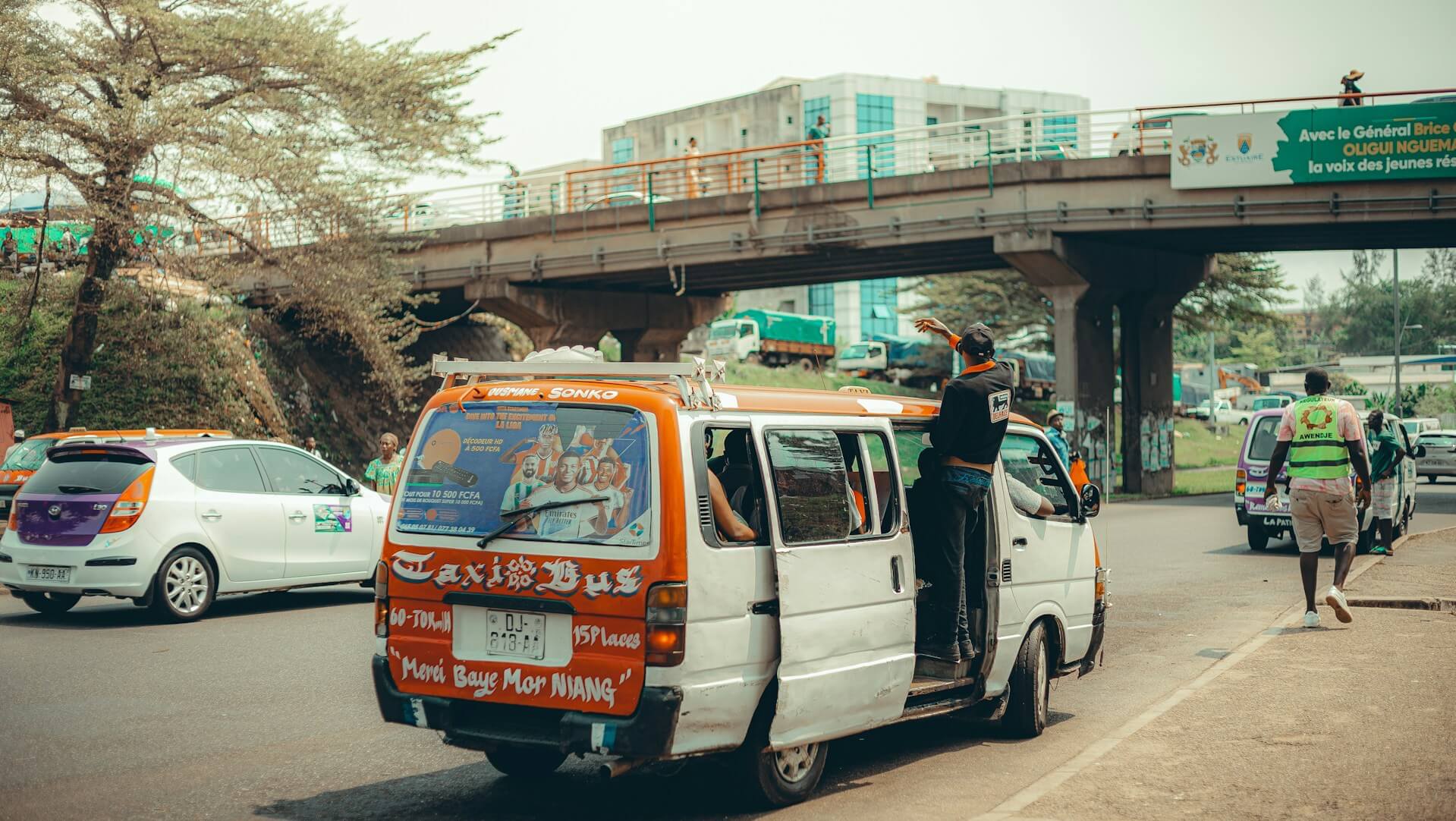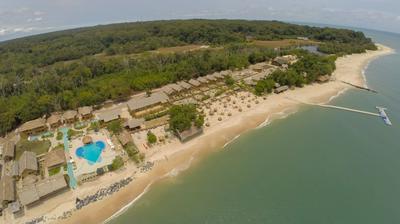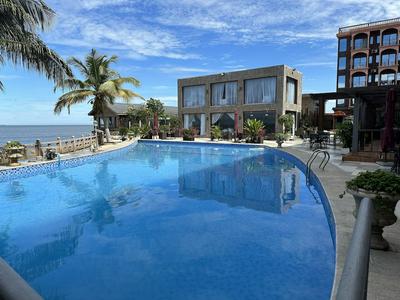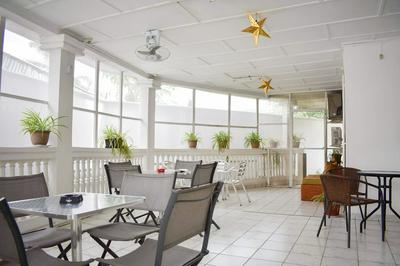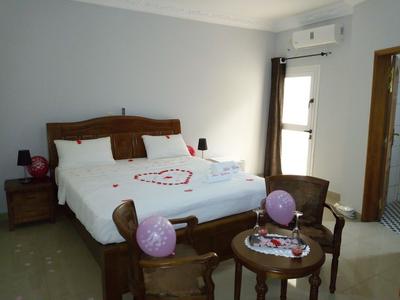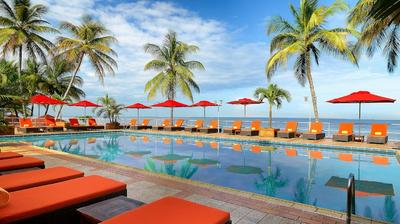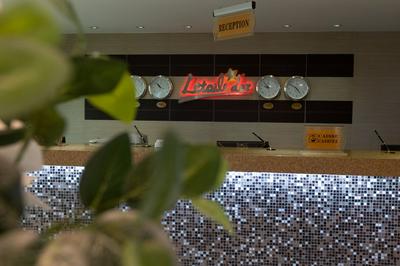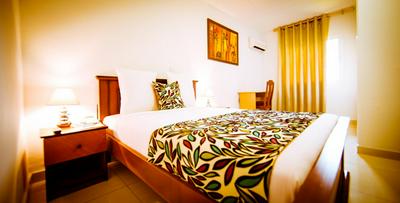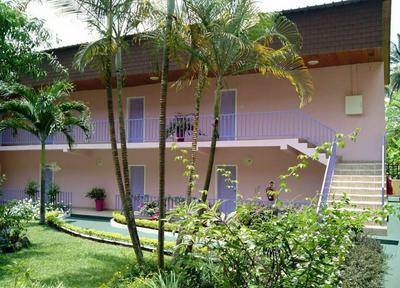When to visit Libreville?
Libreville, the capital city of Gabon, boasts a tropical climate characterized by high humidity and warm temperatures throughout the year. The city experiences two main seasons: the wet season and the dry season. The wet season, spanning from October to May, sees frequent rainfall, especially from December to February, while the dry season runs from June to September, offering clearer skies and more comfortable conditions for visitors.
Considering tourist flow, the ideal times to visit Libreville are during the dry season, particularly from June to September when outdoor activities, beaches, and sightseeing are at their best. In contrast, the wet season might deter some travelers due to heavy rains, but this period is also when the lush rainforest comes alive, presenting a different, serene beauty of the landscape. For those interested in wildlife, visiting in late October or early November can also yield glimpses of migratory bird species arriving in the region.
In summary, if you prefer sunny weather and outdoor adventures, aim for the dry months of June to September. However, if you’re willing to embrace the wetter weather, visiting in October to November can be worthwhile.
How to get to Libreville?
Reaching Libreville is relatively straightforward, primarily through various modes of transportation. The city is served by the Léon-Mba International Airport (LBV), located about 11 km from the city center. Most international travelers arrive here, with flights connecting via major African cities and beyond. Average flight times from Paris are around 8 hours, while flights from other major cities in Africa can vary from 1 to 3 hours.
For those on the road, Libreville is accessible from other cities in Gabon by bus or car. Buses operate forms of public transport with frequent services from Owendo and other nearby towns, with travel times averaging around 30 minutes. If you prefer to drive, the roads in and around Libreville are generally well-maintained, and car rentals are available for visitors seeking freedom for exploration.
Gabon’s train service does not directly connect to Libreville, but there’s a scenic rail line that runs from Franceville to Libreville, offering unique experiences for travelers willing to explore further. All in all, whether flying, driving, or taking the bus, getting to Libreville is relatively easy.
Tourist activities in Libreville
When it comes to activities, Libreville doesn’t disappoint. The city offers a medley of experiences that combines culture, nature, and vibrant city life. Start your day at the bustling Mont-Bouet Market for local ingredients, crafts, and a taste of Gabonese life. For outdoors enthusiasts, the beaches such as the Playa de la Liberté provide a wonderful spot for relaxation and swimming.
As you explore the city, don’t miss out on cultural attractions like the National Museum of Arts and Traditions, where you can delve into Gabonese heritage, or the impressive Presidential Palace, showcasing stunning architecture. Wildlife lovers should consider visiting the Akanda National Park, a short drive away, which is known for its mangroves and diverse bird species. The city also comes alive at night; bars and restaurants light up the scene, especially along the coastline.
Shopping enthusiasts will find delightful gifts and unique finds at artisanal boutiques. The lively atmosphere and diverse activities ensure there’s something for everyone in Libreville.
Events and festivals
Libreville is infused with a lively cultural scene, marked by a series of annual events and festivals that reflect the rich traditions of Gabon. One of the main events, the Gabon National Festival of Arts and Culture, takes place every September, showcasing local performances from music to crafts in various locations around the city.
Another engaging celebration is the Fête de la Musique, held every June 21st, turning the streets into a stage for local and international musicians to perform, filling the city with rhythms and melodies. Furthermore, the International Cinema and African Culture Festival usually happens in November, attracting filmmakers and cinema enthusiasts from across the continent.
For those keen on experiencing traditional Gabonese customs, local celebrations related to harvest or initiatory rituals can also be seen mostly in rural areas surrounding Libreville throughout the year. Visitors will have the chance to partake in vibrant festivities and gather insights about Gabonese culture.
Family and kids activities
Libreville offers several engaging activities perfect for families and kids. Start at the Pointe Denis Beach, where children can splash in the shallow waters and build sandcastles, while parents relax under palm trees. For a dose of adventure, consider a trip to the nearby Akanda National Park for short nature walks, where kids can learn about local wildlife in a safe environment.
The Natural History Museum is another family-friendly venue, filled with educational displays about Gabon’s unique flora and fauna, making it informative and fun. In the city, local parks such as the Parc de la République provide open spaces for play and picnics, ensuring ample opportunities to unwind amidst nature.
Your family will also enjoy visiting themed restaurants where children can savor local dishes in a welcoming environment. Overall, Libreville caters thoughtfully to families with diverse attractions to keep everyone entertained.
What to see in Libreville?
Exploring Libreville rewards visitors with several fascinating sights to behold. Begin your tour at the Gabonese National Museum, where historical artifacts and indigenous art tell the story of the region. Not far from there is the stunning St. Michael's Cathedral, showcasing exquisite stained-glass work and architecture worth studying.
The Jardin Botanique, that presents an array of local plants, is perfect for enjoying a peaceful stroll amidst greenery. The famous Boulevard Triomphal is a lively place ideal for people-watching and taking in the pulse of the city.
Key attractions in Libreville include:
- National Museum of Arts and Traditions: Offers a deep dive into Gabonese heritage.
- St. Michael's Cathedral: An architectural gem in the city's heart.
- Mont-Bouet Market: An exciting hub filled with colors and local products.
- Jardin Botanique: A serene garden ideal for relaxation.
- Akwaba Beach: A favorite spot for sunbathing and beach activities.
These spots reflect the essence of Libreville and are simply must-sees while exploring the city.
Accommodation in Libreville
When it comes to accommodation, Libreville offers a range of options to suit different budgets and preferences. From luxury hotels to budget-friendly hostels, visitors can find a suitable place to stay. Cappuccino Hotel and Radisson Blu are among the upscale options, providing modern amenities and stunning views of the Atlantic Ocean.
For those traveling on a budget, several guesthouses and hostels offer clean and comfortable rooms without breaking the bank. Areas such as the city center and the neighborhoods adjacent to the beach grant easy access to local attractions, restaurants, and nightlife.
In addition, boutique stays and serviced apartments are increasingly popular, catering to travelers looking for a more homely environment. Be sure to check specific neighborhoods for their unique advantages—some are quieter, perfect for families, while others are bustling with nightlife and dining options, allowing you to tailor your stay in Libreville.
Important numbers and information
- Emergency numbers: Police: 17, Fire: 18, Ambulance: 20
- Tourist Information Centers: Located near the National Museum.
- Main Hospitals: Centre Hospitalier Général (CHU) and American Hospital.
- Airport Contacts: Léon-Mba International Airport: +241 01 45 75 00.
- Public Transport Info: Buses run regularly, schedules available at stations.
- Taxi Apps: Use local taxis or ride-hailing apps like Heetch.
- Currency: Central African CFA franc (XAF), widely accepted. Credit/debit cards are used in major establishments.
Where to eat?
Librevills's culinary scene is a delightful journey into the flavors of Gabon. The local cuisine often features seafood, grilled meats, and various vegetables, with popular dishes like 'Poulet Nyembwe' (chicken in palm oil) and 'Saka Saka' (cassava leaves). Dining out can be an enjoyable experience, with restaurants scattered throughout the city serving both local and international fare.
Notable dining areas include the beachfront restaurants where diners can enjoy meals with stunning views of the ocean. Street food is also a must-try; stalls selling grilled fish or meat skewers are prevalent and affordably priced, providing a real taste of local life.
Overall, meal prices can vary significantly based on the establishment, with street food dishes costing around 1,000 - 3,000 CFA francs, while higher-end restaurants may charge anywhere from 10,000 - 25,000 CFA francs per meal.
Nightlife – where to go out?
Libreville's nightlife is vibrant and diverse, characterized by a blend of local bars and lively clubs. Head to the bustling area of 'L'Avenue' where multiple bars line the streets, a perfect spot to start your evening. Here, you’ll find Chez Nsock, renowned for its relaxed atmosphere and cold beers, making it a favorite among locals and visitors alike.
For a livelier scene, check out the Club le 210, known for hosting DJs and live music that keeps the dance floor buzzing. Not far away, La Nuit is a trendy club that features a mix of genres, from Afrobeats to international hits, catering to young crowds seeking a fun night out.
The entertainment districts near the coast have a special charm at night, where the sound of music fills the air, and the nightlife feels alive, offering plenty of options for an enjoyable evening in Libreville.
Transport and taxis
Getting around Libreville can be a breeze with an assortment of public transport options. The city's buses operate on various routes at minimal fares, making them an affordable way to navigate through the urban landscape. It's best to have small change handy as cash is generally required for tickets.
For more direct transport, taxis are readily available. Be sure to use marked taxis, and it's advisable to agree on a fare before departing to avoid surprises. Ride-hailing services such as Heetch are also growing in popularity and provide a safer alternative to traditional taxis.
As for safety tips, always stay vigilant and avoid traveling alone late at night. Here’s a quick bullet list of essential transport information:
- Buses: Regular services throughout the city, fares around 300 CFA francs.
- Taxis: Marked vehicles; agree on fare beforehand.
- Apps: Heetch and local ride services available for convenience.
- Safety: Travel in groups at night; stay in well-populated areas.
Parking and public garages
Parking in Libreville is relatively straightforward, though finding a spot can be a challenge in busy areas like downtown. Most streets have designated parking zones, and it's essential to adhere to local regulations to avoid fines. Public garages are also available, especially near major shopping centers.
Pricing for parking varies depending on the area; expect to pay around 500 CFA francs per hour in busy districts, with some lots offering flat rates for the day. If you're driving, be cautious of pedestrians and local driving habits. It’s advisable to park in well-lit areas and avoid leaving valuables in sight.
Surroundings of Libreville
The surroundings of Libreville offer several enticing day-trip opportunities, ideal for travelers looking to explore further afield. Just a short drive northeast, you’ll find Akanda National Park, rich in biodiversity and home to beautiful mangroves and lagoons, perfect for nature walks and bird-watching activities.
Another excellent destination is the stunning Pointe Denis, accessible by boat, where pristine beaches await. It’s an excellent spot for swimming and relaxation or indulging in a beachfront picnic amidst whispering palms.
A bit further afield, the Loango National Park presents an incredible experience for wildlife enthusiasts, where you can spot elephants and various species in their natural habitat. The journey to these locations provides an excellent opportunity to appreciate Gabon's beautiful landscapes.
